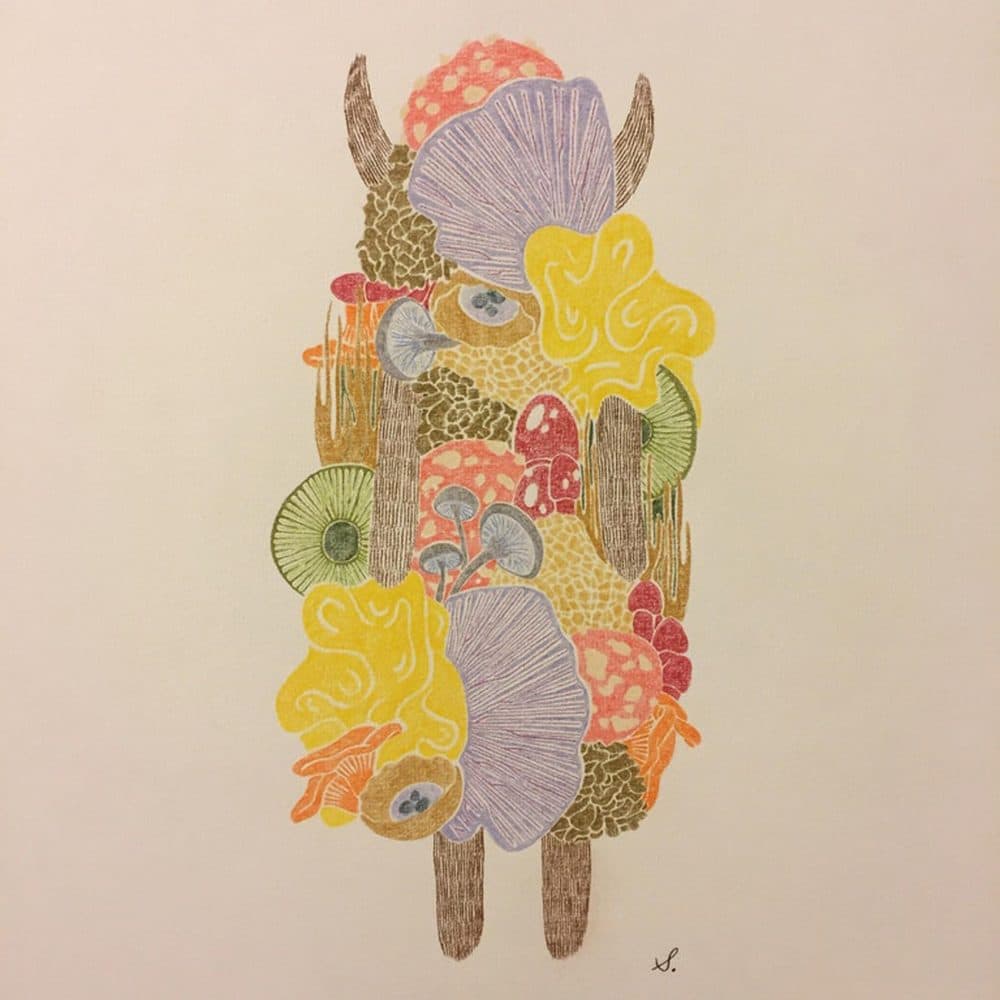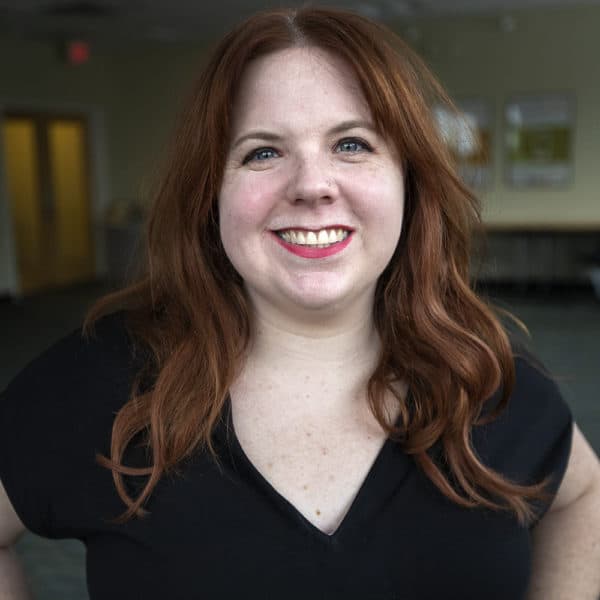Advertisement
How Your Dirt Could Help Find Disease-Curing Medicine
Resume
OK, let's get a cheesy joke out of the way so you can understand the premise behind this episode. There are a lot of different versions, but this is the gist of it:
A mushroom walks into a bar and sits down to order a drink. The bartender walks over and says, "I'm sorry, sir, but we don't serve your kind here." The mushroom sits back and asks, "Why not? I'm a fun guy!"
Get it? Fun guy? Fungi?
This week's episode is about a program that uses fungi to discover new medicines.
About three years ago, Aidan — aka /u/TrustZero — posted on the subreddit /r/YouShouldKnow about that program, which is run out of the University of Oklahoma. (P.S. He emailed us this story! Hit us up at endlessthread@wbur.org if you also have a cool Reddit story to recommend.)
Robert Cichewicz, a professor at the university and the principal investigator for the school's Natural Products Discovery Group, describes what they're trying to do with all these soil samples:
Fungi traditionally have been a great source of natural products that have translated into medicines. Some wonderful examples of this include things like penicillin. Penicillin probably has had the greatest impact of any other medicine on humankind, and that comes from a fungus. Statens — cholesterol lowering medicines -- those originate from fungi. Cyclosporines prevent organ rejection, so people who have had an organ transplant, they originate and still are produced from fungi.
And in order to find more fungi to help with this cause, you need more soil samples. Cichewicz says, on average, a soil sample gives them about 11 fungi. They grow the fungi on Cheerios in the lab, and the fungi produce molecules and new compounds, referred to as "natural products."
The hope is that, one day, one of these natural products can be turned into an antibiotic or other disease-fighting drug.
In an effort to get more soil samples, the Natural Products Discovery Group created the Citizen Science Soil Collection Program. The program mails out soil collection kits upon request, complete with a little scoop and a return envelope with pre-paid postage, says project manager Candace Coker.
The program started in 2010, and for the first five years or so, donations trickled in, Coker says. They had about 250 soil samples total. But once Aidan posted about it on Reddit, everything changed.
It was March 13, 2015. The post hit Reddit around 9 a.m. and Coker's email inbox started to blow up.
"In the next few days, it just spiraled and spiraled and spiraled, and within about three and a half days, we were up to about 3,500 requests. And by the end of the week, we were closing in on 5,000 requests," she said.
The lab is now up to more than 18,000 soil kit requests, says Coker.
"One of these molecules that's being developed right now by our lab and our collaborators' laboratories is for Ewing's Sarcoma. Ewing Sarcoma is a solid tumor affecting the bone of children," says Cichewicz. "There's about 2,500 cases a year and there's no cure for it. So this molecule that we've been able to pull out from a fungus, it was a soil sample from the Citizen Science collection from New Jersey. And it turned out this molecule is showing excellent selectivity for Ewing's Sarcoma. And so, it’s things like that that we’re very excited about."
Pretty amazing — that the cure for a rare cancer just might live in a backyard in New Jersey?
What's even more amazing is that the Natural Products Discovery Group's soil collection is now an open access resource for any disease researcher in the United States.
"A sample that comes to us, that fungus may end up being studied by dozens of researchers over the next many decades," says Cichewicz.
If you'd like to donate a sample to the program, head over to What's In Your Backyard? and fill out the soil kit request form. And if your sample ends up yielding something interesting, let us know! We're at endlessthread@wbur.org.
Also, if you find yourself in Oklahoma City anytime soon, visit Science Museum Oklahoma to see an exhibit devoted to the work of the Natural Products Discovery Group. It's called Decomposition: Discovering the Beauty and Magnificence of Fungi.
Thanks to Redditor u/yo_beara for this week's artwork, titled "Fungus." Find more of her stuff at www.beara.space and on Instagram as @yo_beara.
We're on Twitter at @endless_thread and on Reddit as /u/endless_thread. Subscribe to the podcast with Apple Podcasts, Stitcher, RadioPublic or RSS.
